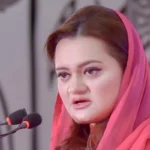Nupur Sharma, the BJP’s national spokeswoman, started it all. Sharma made disparaging remarks against the Prophet during a debate on television (PBUH). Her co-worker, Naveen Kumar Jindal, the head of the BJP’s Delhi media unit, tweeted in favour of her after her offensive rant received backlash inside India, stoking the flames. He then removed the tweet, but the harm had already been done.
What actions did the BJP government take? Nothing at first. The BJP then took the flimsy measure of suspending Sharma’s main membership from the party while Jindal was expelled in response to the violent demonstrations in numerous Indian cities. The right-wing BJP administration seemed to have decided that it had done enough and put the unpleasant incident behind them. It was an error. India was battered by a diplomatic storm.
In response to the remarks, India’s ambassadors to Kuwait, Qatar, and Iran were summoned and delivered formal notes of the complaint. The “extremely insulting statements” and the BJP’s response were denounced in a statement by Pakistan’s minister of foreign affairs. A spokeswoman for Qatar’s foreign ministry said, “The State of Qatar calls on the Indian government to immediately condemn these remarks and publicly apologise to all Muslims around the world.”
The Organisation of Islamic Cooperation, the second-largest international group after the United Nations, and the Kingdom of Saudi Arabia both released identical statements. The 57-member state organisation stated in a statement: “The General Secretariat of the Organisation of Islamic Cooperation expresses its strong condemnation and denunciation of the recent insults issued by an official in the ruling party in India towards the Prophet Muhammad, Peace Be Upon Him.”
Users of social media condemned the offensive statements and demanded a boycott of Indian goods as the outrage also extended to Bangladesh and other Muslim-majority nations.
Damage control was employed by the Indian government, which said that it did not “support such individuals or ideas” and was “against any ideology which degrades or demeans any sect or faith.” Its missions released a statement claiming that the [derogatory] remarks were the “opinions of fringe individuals” and did not represent the government’s position. These claims were dismissed by knowledgeable observers of India, both inside and outside the country, who cited the government’s systematic support for Hindutva activists since it came to power in 2014 and was re-elected in 2019.
Additionally, analysts noted that Sharma, one of the BJP’s national spokespersons, was by no means an outlier. In reality, she has been a nightly presence on television talk shows, supporting the BJP as a lawyer with a degree from the London School of Economics. She also ran for the BJP in the most recent election, running against Delhi Chief Minister Arvind Kejriwal. To Kajiriwal, she fell short.
Since Partition in 1947, Muslims have experienced communal violence in India as well as in the occupied and, since August 5, 2018, unlawfully annexed Jammu & Kashmir. Minority suppression and persecution are not recent phenomena. However, Narendra Modi’s entry into the scene has transformed Hindutva and the Hindutvadis into an overt and brazen force. To avoid being associated with criminals, Modi remains silent whenever an atrocity occurs. The strategy is ineffective in the eyes of the BJP’s astute analysts both inside and outside of India. It is obvious that the majority of Hindutvadis—if not all—are also Moditvadis.
There is a good explanation for this. The Rashtriya Swayamsevak Sangh’s fascist womb gave birth to the Bharatiya Janata Party (RSS). The BJP’s leader, Modi, was a paracharak, or an RSS apparatchik in Sangh parlance. Atal Bihari Vajpayee, another Sangh paracharak, had already attained the position of the prime minister of India.
In his 2019 book, RSS – A Menace for India, a renowned Indian jurist and writer A G Noorani provided a comprehensive history and analysis of the RSS’s origins and beliefs. The RSS, according to Noorani, is a fascist, dishonest, and communal organisation. In a pre-book launch interview with HuffPost in 2019, Noorani stated, “Look, this is the party which floated the VHP (Vishwa Hindu Parishad) in 1964, Jan Sangh in 1951, and the BJP in 1980. You see, people say, ‘let it become a conservative and non-communal party.’ You can’t do that. You can’t ask the Pope to become Protestant. This is their philosophy and outlook.”
The book’s introduction by Noorani begins, “What is at risk is not only the Indian Dream. The soul of India is in jeopardy. I’m not sure what more to say if this isn’t crystal clear.
The predicament of Indian Muslims and Muslims in the IOJK has long been known to nations with a majority of Muslims. However, most have mostly kept silent due to India’s size and interdependencies. It appears that the Modi-led BJP believed they could manage domestic matters in isolation and protect India’s foreign policy from the effects of domestic events. A mistake was just waiting to happen there.
While Muslim-majority states have unjustly and for diplomatic purposes opted to ignore the repression and denigration of Muslims in India, the position of the Prophet (PBUH) is a problem quite different from that. By crossing a line, Sharma—and the BJP with her—brought attention to the intolerance that currently permeates significant portions of India.
Following the diplomatic disaster, numerous Indian diplomats have stated that India cannot hermetically separate domestic ideas and their expression from its foreign policy. Human rights breaches in India are a growing source of concern. For the third year running, the US Commission on International Religious Freedom asked the US Department of State to classify India as one of the “countries of particular concern” about religious freedom.
More than 8 million Indians work in the Gulf states. According to some estimates, the Gulf contributes a staggering $43 billion to India’s remittances, ranking second only to the US. India’s second-largest export market and third-largest commercial partner is the United Arab Emirates. The data is readily available for several additional interdependencies. The argument is that while the realities of statecraft and commerce may temper the fury in the Muslim-majority states, India cannot, as this example demonstrates, disregard those sensitivities. In other words, it cannot have the same freedom to act against the Muslim bloc as it has against the Muslims living in its own country.
What are the chances of seeing this now? Since Sharma has apologised and filed formal complaints against her, she may soon face legal repercussions. India has been warned that what occurs on Indian TV doesn’t only remain there after the response from the Muslim world. It has repercussions. The Sharmas and Jindals will probably be forced to be more selective about the bollocks they release as a result. However, the BJP under Modi has also, for both intellectual and political reasons, embraced the Hindutva ideology. That is the Janus-faced truth of the BJP. The question of how far the BJP can reverse the rhetoric that supports its existence is academic.








